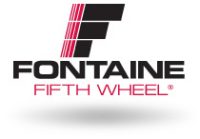Ensuring your truck is winter-ready goes beyond precaution; it’s about guaranteeing safety and efficiency during the cold season. As temperatures drop, equipment failure risks rise, making thorough preparation essential. Let’s explore vital steps to prepare your trucks for the impending winter weather.
1. Air System Maintenance
Moisture within the air system poses a significant threat when it meets cold surfaces, potentially causing malfunctions. Daily draining of air tanks, especially the wet tank, prevents moisture from compromising the system. Mitigate freezing risks by ensuring the plumbing is free from obstructions.
Consider upgrading to more user-friendly twist-open types for air tank drain cocks to facilitate complete drainage.
Air System Checklist:
- Routinely drain air tanks to eliminate moisture buildup.
- Inspect and rectify any kinks, bends, or restrictions in the system plumbing.
- Service or replace aging air compressors prone to issues in cold weather.
2. Inspection of Charging and Starting Components
The increased electrical load during winter necessitates meticulous battery checks. Opt for batteries suitable for the specific truck application. Regularly inspect wiring connections to prevent corrosion and ensure efficient electrical performance.
Clean and protect battery terminals, and thoroughly examine the trailer pigtail for possible damage due to exposure to harsh conditions.
Start/Charge Checklist:
- Conduct thorough battery tests and replace weak or failing batteries.
- Evaluate the output of alternators and starters.
- Inspect, clean, and secure wiring connections to prevent corrosion.
3. Check the Cab and Chassis
Water accumulation in fuel tanks can lead to freezing within the fuel lines. Regular checks and timely filter replacements prevent such issues. Properly lubricate the fifth-wheel locking mechanism to maintain functionality in freezing conditions.
Cab/Chassis Checklist:
- Inspect fuel tanks for water accumulation and promptly replace fuel filters.
- Clean and lubricate the fifth-wheel locking mechanism and slider tracks to prevent freezing.
Additional Winter Maintenance Tips
- Evaluate engine coolant for freeze resistance and rust inhibitors. Pressure-test the system for leaks and ensure secure hose clamps.
- Thoroughly clean the fifth-wheel locking mechanism to prevent stiffness caused by road debris.
- Ensure the alternator mounting brackets, belts, and tensioners are in optimal condition to prevent potential slipping and reduce alternator output.
- Confirm the functionality of all components within the cab. Check mirror heaters, heater-defroster fans, and door/window seals for air leaks. Apply antifreeze lube spray to door locks. Additionally, inspect the exhaust system for potential under-cab leaks to avoid carbon monoxide risks.
- Always equip your truck with fresh wiper blades for winter, keeping the old ones as spares. Inspect tire chains for wear and damage before the need arises.
Tire Maintenance in Cold Weather
Cold temperatures influence tire pressure due to changes in air density. Regularly check tire pressure when cold, being cautious of potential valve freezing in extremely low temperatures. Consider purchasing new tires in the fall for improved traction and extended wear during winter.
Preparing your truck comprehensively for winter ensures smoother operations and minimizes potential risks associated with cold weather. Proper maintenance not only safeguards equipment but also prioritizes the safety and well-being of drivers, making winterization an integral aspect of effective truck management.






